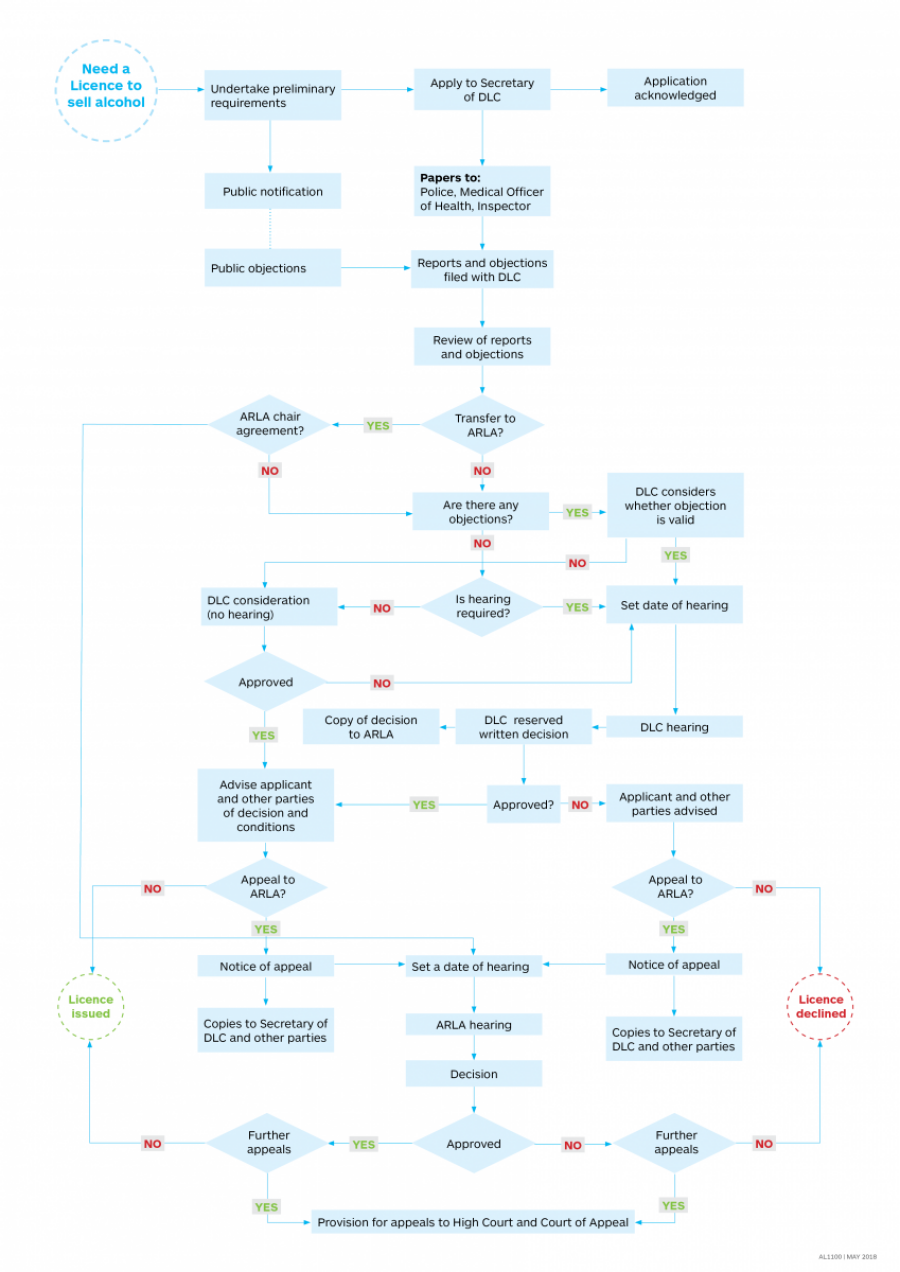Alcohol licensing
What is a licence to sell alcohol?
Sale of alcohol to the public requires the seller to have a licence. There are four types of licence:
- On-licence (eg, pub, tavern, hotel, restaurant, cafe, bar, entertainment venue, train, plane) allows the sale or supply of alcohol for consumption on the premises.
- Off-licence (eg, bottle store, supermarket) allows the sale or supply of alcohol for consumption off the premises.
- Club licence (eg, sports club, RSA, working men's club) allows the sale or supply of alcohol for consumption on the club premises to members of the club, their guests and members of other clubs with reciprocal visiting rights.
- Special licence (eg, for a food and wine festival, wedding in a council hall etc) allows the sale or supply of alcohol to anyone attending an event, private function, street party, sporting event. Special licences can be either ‘on-site’ for consumption on the premises, or ‘off-site’ for consumption elsewhere.
An on-licence, off-licence, or club licence is granted initially for one year and then can be renewed every three years. Special licences are granted per event or for a series of events.
The licensing process

What does a licence to sell alcohol allow?
It allows the licensee to sell alcohol according to the conditions of the licence. Conditions cover such things as:
- who alcohol can be sold to
- the hours and days alcohol can be sold
- who is allowed on the premises
- the range of food, non-alcohol and low-alcohol drinks to be provided
- provision of information about alternative transport arrangements.
There are requirements that may not be included on a licence but must nevertheless be adhered to. It is against the law for a licensee or their staff to sell alcohol to anyone who is intoxicated, to allow a person to become intoxicated, or to serve alcohol to anyone under the age of 18 years. There are heavy penalties for these offences.
Find out about licence criteria
Find out about the manager's role and required qualifications
If you're working in the hospitality sector as a licensee, manager or bar staff, there are useful resources you can download or order.
Drug checking and alcohol licensing
- The Sale and Supply of Alcohol Act 2012 and the Misuse of Drugs Act 1975 (specific to the drug and substance checking amendments 2021) share the same policy intent, which is to minimise substance-related harm.
- Nothing in either Act precludes establishments with alcohol licences from operating in proximity to drug checking services.
- Similarly, nothing in either Act precludes events from holding an alcohol special licence while also hosting drug checking services.
- As part of a licence application for a large-scale event, the Sale and Supply of Alcohol Act 2012 provides for applicants to work with Police and the territorial authority to develop a bespoke event management plan. The event management plan supports event providers to manage risk and ensure patron wellbeing.
- Police advise that where an event provider believes illicit drug use may be an issue, action steps to deal with this should be included in the event management plan. These can be steps such as having bag searches as a condition of entry, a policy of removal from the event for those caught with illegal or controlled drugs, and/or a policy for how to manage intoxicated people, among others. We would not expect these action steps to relate to drug checking services.
- Further, Police guidance is that people’s presence in or near a drug checking service area is not sufficient grounds to enact a warrantless search.
- The Sale and Supply of Alcohol Act 2012 provides for district licensing committees to add specific conditions to alcohol licences to ensure the objects of the Act are upheld. While a condition could be imposed, for example, to require compliance with an agreed event management plan, we would not expect conditions to be imposed that links the alcohol licence to any drug checking services.